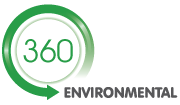Separate collection (TEEP)
Overview
From 1 January 2015, the Waste Regulations (England and Wales) 2012 applied a requirement for any ‘establishment or undertaking’ that collects waste to separately collect paper/card, plastic, glass and metals where separate collection is necessary to ensure that the waste undergoes treatment for recovery or recycling and where ‘Technically, Environmentally and Economically Practicable’ (TEEP).
An ‘establishment or undertaking’ includes waste management companies, Local Authorities and brokers and applies to collectors of both household and business waste.
What does this mean in practice?
There are two key issues:
- Do these materials have to be separately collected from other waste?
- If they do, can they be collected co-mingled or must each material be collected separately.
The criteria that determines the first is the TEEP test. However, there has been no clear guidance on how this should be applied although in a Judicial Review in 2013, the judge stated that ‘in common parlance, practicable means more than merely convenient, useful or even practical; but rather feasible or capable of being done’. This suggests that the default position should be – as in Scotland – that waste collectors should only collect the four materials separately to other waste. However, there is no parallel requirement for waste producers to separate out those waste materials although under their waste hierarchy obligations, they should ensure that they are disposing of their waste as high up the hierarchy as possible.
The Environment Agency expects collection businesses to offer separate collection where possible, but Guidance they have issued on this is not particularly onerous.
The answer to the second question relates to the ability for the material to be recycled. If, by comingling, the quality of the recycling output from a sorting facility is no worse that it would be had the materials been collected separate to each other, then comingling is acceptable. This has been more of a headache for Local Authorities and household waste as many collection contracts rely on comingled collections to achieve high participation rates from householders. Many Local Authorities, for instance, include glass in the mix, but there is a view that glass and paper should never be mixed because of the degradation of the paper output quality.
Mapping
Local Authorities are supposed to conduct an Assessment to determine the route they take and to justify comingled collection if that is what they chose. WRAP has provided Guidance on this but how widely it has been applied is not known.
In Scotland, their Waste Regulations apply the separation requirement to both the waste collector and the waste producer under a more rigid requirements which requires separation unless there are other regulations that prevent it – such as Health and Safety. This has been backed up by guidance from SEPA who are enforcing their expectations.
But in England and Wales, the environment Agencies apply a very soft touch and there has been very little publicity about the requirement and no enforcement.
